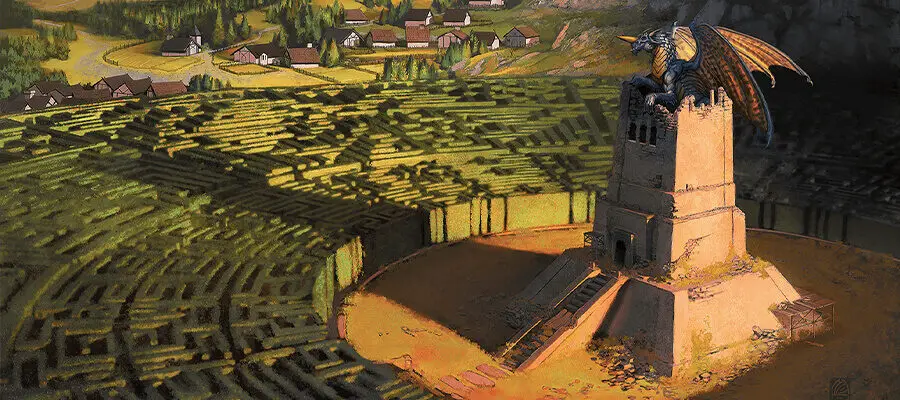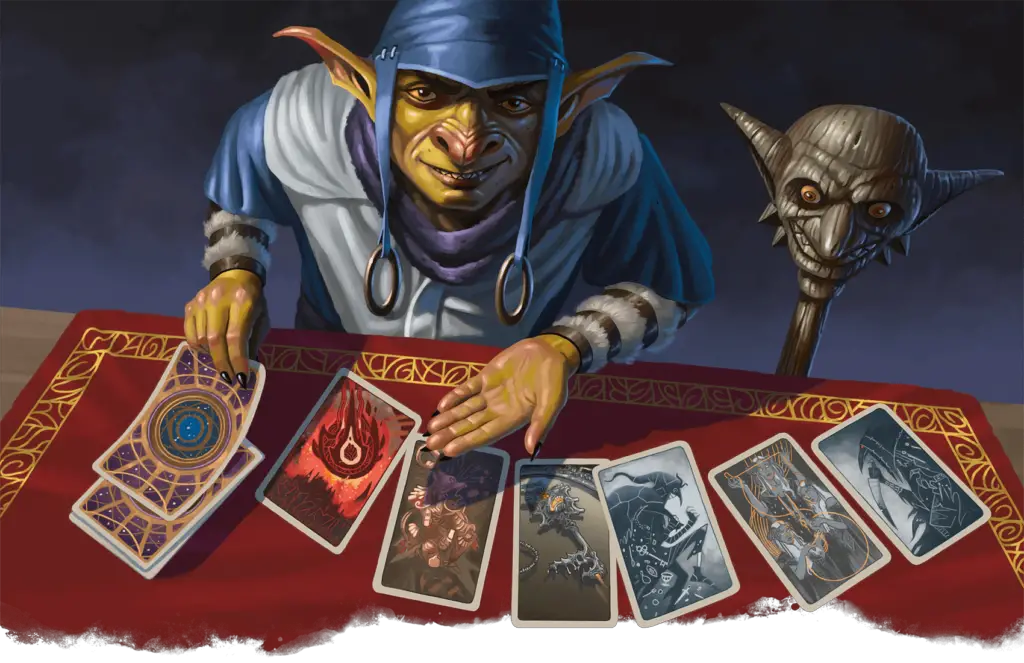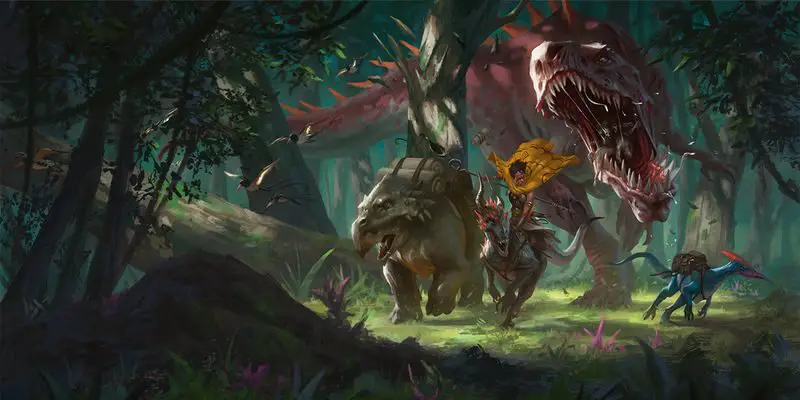West Marches D&D article featured image is from The Rise of Tiamat. This article contains affiliate links to put gold in our coffers.
I played D&D 5e from the start. I played during the playtest of D&D Next, and we moved to 5e when it dropped. It was a wonderful time, but my first campaign almost didn’t reach its end. We felt scheduling fatigue and DM burnout. We waited weeks or months for the final confrontation.
After my first campaign ended, we tried running other campaigns, but almost all of us were in college. It was difficult to commit to regular meeting times for more than a few months. Additionally, players had to miss a lot of games due to schoolwork, family events, vacations, work, and the list goes on. We needed to find a different way to play.
The Best West Marches D&D System (for us)
We didn’t know what West March games were, but we ended up mimicking the style pretty closely. Our group called it “Our Adventurers’ League,” and we had about 25 players in the rotation. We coordinated games via our Facebook group as that was easiest for everyone at the time.
The premise we went with was similar to the Pathfinder society (my first DM played a lot of Pathfinder, too). The characters were mercenaries in an adventuring guild. The guild received commissions (adventure hooks), and they’d put together adventuring parties to tackle each task.
The greatest benefits of the West Marches D&D style were that many of us gained DM experience, we could play many characters, and the format was flexible. DMs and players could also experiment with different rulesets and genres. We could learn from our mistakes quickly and develop our strengths as players.
If a member of our group had an idea for an adventure, they’d look for players in our group chat. The DM would specify the desired level range of characters, provide potential meeting times and intended duration, and a brief synopsis of what to expect. This allowed players to bring characters they deemed suitable for the adventure.
We played in person, not online, but I don’t see why this format wouldn’t work online. In fact, we used many online resources. For example, shared cloud docs tracked sessions, including who the DMs, players, and characters were.
Unlike traditional West Marches, we weren’t developing a town or stronghold. However, our adventures and actions did have ripple effects throughout the world and future adventures.
Experience Points and One-Shots in West Marches D&D
Players would start with low-level characters, and they’d receive experience points as they completed one-shots. I became convinced that one-shots should complete in a single session because I experienced many loose-end adventures that didn’t conclude in time. Getting to the action quickly was important. It was easy to waste time in town wandering or shopping; that needed streamlining or out-of-session address.
DMs awarding experience points started to feel left out because their characters fell behind, unable to adventure while they ran games. To encourage DMing, we ruled that DMs would receive a pool of experience points to use on their characters as they saw fit, like an assumption of their progression during downtime. The experience point pool awarded to DMs was half of the experience points they awarded to player characters during their DM session. This worked great for getting DMs’ characters to at least level three.
Overarching Storylines and Evolving Player Options
Though we ran one-shots, it was natural for DMs to thread together a long-form story. For example, finding an item at level two could lead to a later one-shot where the origin of the item is explored. That location may have a villain that makes an escape or is hinted at. Later, an adventure that involves infiltrating a guild may reveal that the previous villain is the leader of the guild. Ultimately, that villain may get their hands on an artifact that leads to an entire city being turned into zombies while a portal to the realm of ooze is opening (that escalated quickly).
Part of the fun was that players never knew if they were participating in a bottle episode (to use a television term) or an adventure that would later progress. They never knew until it was happening.
Some adventures involved local political intrigue in the capital city where the league was located. Others would involve lengthy trips to distant lands in need. DMs could explore an entire world on a whim. When new playable races were revealed through Unearthed Arcana, we’d allow them to be used. DMs would sometimes create stories that involved the incorporation of new character options. For example, I ran one where 1,000 souls were taken, but then they were placed into an ancient army of constructs when the souls were reclaimed (their original bodies were destroyed). This was how we introduced the Warforged to our shared world.
Nowadays, there are plenty of existing adventure modules to pull from. If you want to run a West Marches game, try pulling pieces out of modules you’ve played or liked.
West Marches D&D Discord Servers
If I convinced you of their value, here are Discord servers where you can join West Marches games, though I haven’t vetted them.
Playing in West March games will allow you to hone your skills in doses and rapidly experience more of what D&D has to offer. Embrace the freedom and the value of a West Marches style for your group. Let me know how it goes!
Cast Message in the comments below to tell me about your desires or experiences with West Marches D&D games. Discover more tips and ideas for DMs here.




